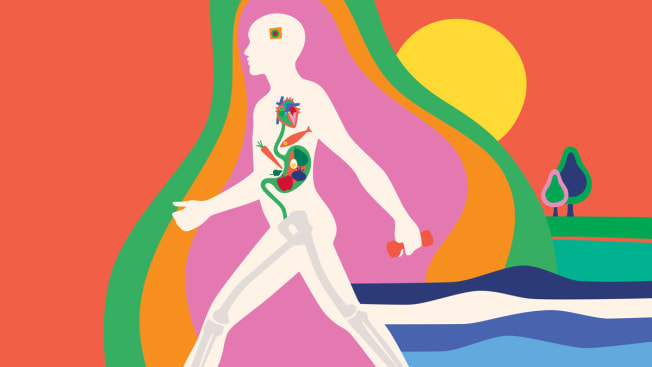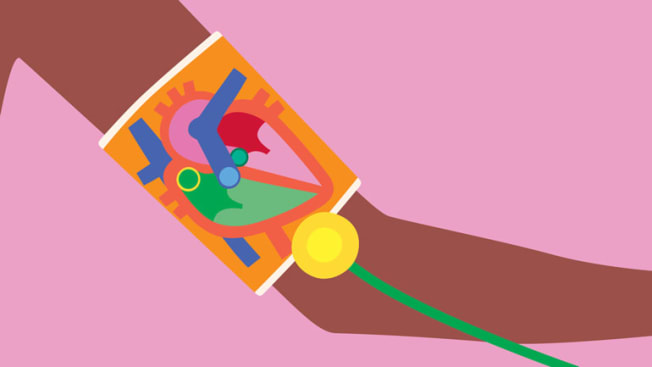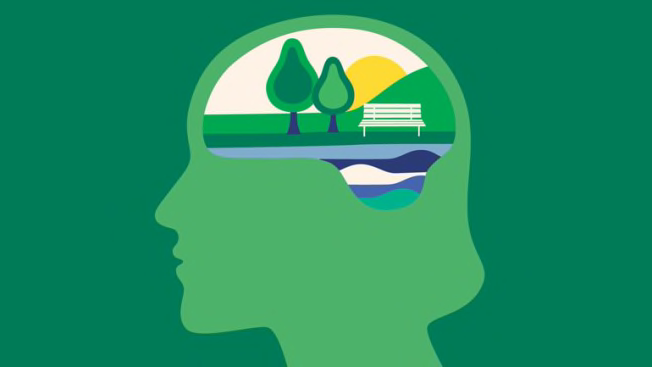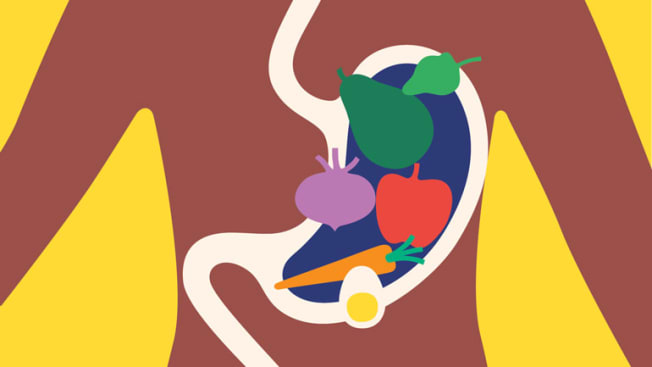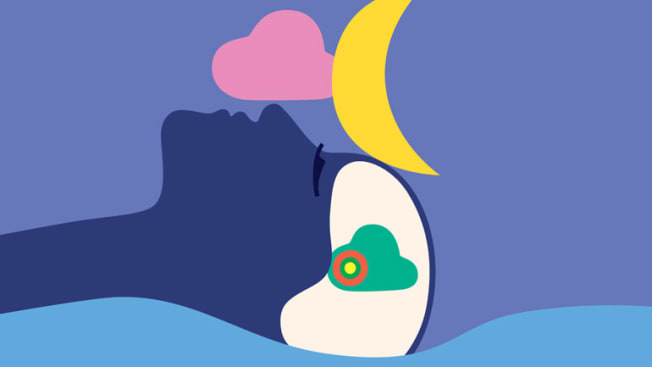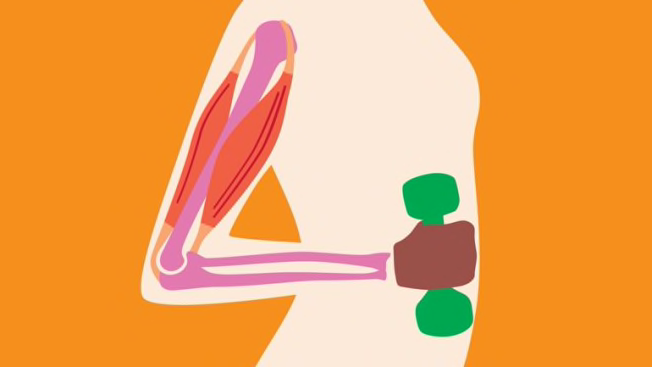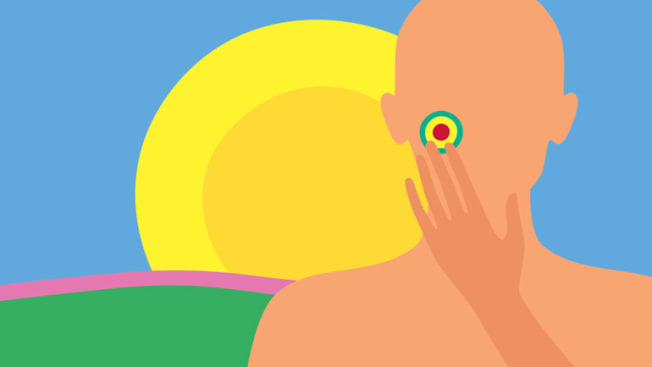It’s not just about extending life, but also about how to keep feeling good for years to come. Here we tell you everything that will help you to achieve it.
By Kevin Loria
Some people in their 80s and 90s haven’t slowed down yet.
They publish books, enter bodybuilding competitions, win titles, compete in regattas, and reunite with family and friends decades younger.
Before it was almost unthinkable, but it is becoming more frequent. Much of what we’ve learned about thriving later in life is relatively recent. Today, life expectancy is 26 years greater than it was in the 1950s.
And the older you are, the more likely you are to continue living: a baby born today in the United States has a life expectancy of about 76 years. It is estimated that a 40-year-old will live to be almost 79, and a 60-year-old will live to be 82. If you are 80 now, chances are you can live to be almost 89.
“As a medical community, we’ve gotten quite a long life,” says Emily J. Rogalski, PhD, a clinical and cognitive neuroscientist and professor of psychiatry and behavioral sciences at Northwestern University Feinberg School of Medicine in Chicago. The great challenge today is that our life expectancy, the time we live in good health in general, “does not always keep up.”
Age remains the number one risk factor for chronic diseases such as cancer, heart disease, and neurodegeneration. But researchers are actively working to find the best way to prevent age-related disease and decline, and people who enjoy excellent quality of life in their 80s and 90s are helping lead the way.
All of this means there’s a good chance that your later years will be more fulfilling than you could have imagined decades ago. “There is tremendous potential,” says Rogalski, who studies the “super-elderly”—people 80 and older with a memory (and often health) equal to that of adults in their 50s or 60s. Although some factors are out of your control, much of how you feel and what your life will be like 10, 20, or 30 years from now depends on what you do right now.
What makes the difference?
We start aging from the moment we are born. And aging can bring certain benefits. Although some of our abilities peak early, such as speed running or rapid information processing, others continue to improve. Our ability to produce creative work and develop specialized knowledge can grow throughout life. Some evidence suggests that happiness has a U-shaped curve, high in young adults before falling to a nadir in the late 40s, then rising again. Genes and social factors, the neighborhood you live in, racism or other traumas you have suffered, access to medical care, etc., all contribute to your state of health. But the lifestyle also influences.
In addition to recommended medical checkups and vaccinations, there are 3 factors – exercising, eating right and getting enough sleep – that can help boost the immune system and improve the health of almost every system in the body According to Rogalski, there is a fourth factor Just as crucial to healthy aging: strong social connections, which are almost always found in areas known for having many super-elderly people, such as Sardinia (in Italy) and Okinawa (in Japan).
The strong social fabric is a key factor in all of these places, says Julia Adamian, MD, associate clinical professor at New York University Grossman School of Medicine. “People take care of each other,” she says.
Wherever you live, and whatever your life experience or family background, you can benefit from specific actions to strengthen body systems that may start to falter as you age. And it’s never too early or too late to start. This guide will help you understand what tends to happen to 6 important systems, how they can change with age, what you can do to strengthen them, and how to stay in top shape for many years to come.
Illustration: Kari Moden
Your heart
What happens when you get old: the heart becomes less efficient at pumping blood through the body, which can limit the ability to exercise and, over time, to perform normal daily activities, says Scott L. Hummel, MD, cardiologist and program director for Heart Failure with Preserved Ejection Fraction at the University of Michigan Frankel Heart and Vascular Center in Ann Arbor. Blood vessels also tend to harden over time, which can lead to high blood pressure. The more heart disease risk factors are controlled throughout life, the more “young” the heart and cardiovascular system will remain as we age.
Key signs of trouble: Many of the early symptoms of heart disease are not obvious, so you should monitor your cardiovascular health, especially for signs of rapid deterioration. If activities that used to be easy (such as walking a certain distance at a brisk pace) are now an effort, your doctor may be able to help you. Also, be alert for signs of a possible emergency that warrant a 911 call, such as chest pain and shortness of breath.
What can help you: the American Heart Association lists 8 essential factors, including diet (the best evidence points to the Mediterranean and DASH diets, which include produce, whole grains, beans and legumes, healthy fats, fish, and poultry) ; physical exercise; avoid nicotine; sleep between 7 and 9 hours; control body mass index, blood sugar level and blood pressure and control cholesterol.
The more of these habits you adopt throughout your life, the longer you’ll live, and the longer you’ll live free of disease, including heart disease and other chronic ailments of aging, such as diabetes, Hummel says. These measures can improve health at any age, and even reverse the effects of arterial stiffness and reduce the risk of heart attack.
Illustration: Kari Moden
Your brain
What happens when you get old: some aspects of cognition, such as vocabulary, can grow throughout life, and many older people write books, learn new languages or take up new hobbies, says Julia Adamian of New York University. But typically, cognitive performance peaks in your 30s and 40s, says Northwestern’s Emily J. Rogalski. “On average, what we see is that there is some decline with each passing decade,” she says.
Still, many people are more creative and productive in their 50s and early 60s, thanks to their ability to combine cognitive skills with accumulated knowledge and wisdom, says James E. Galvin, MD, founding director of the Comprehensive Center for Brain Health and Professor of Neurology, Psychiatry and Behavioral Sciences at the University of Miami Miller School of Medicine.
As you get older, your processing speed and reaction time slow down, Galvin says. So it may take you a little longer to find the right word, or multitask more difficult. Sight and hearing, both important for brain health, are sometimes impaired. And after age 80, the risk of developing mild memory problems or dementia increases. However, some superelderly seem able to avoid even normal age-related cognitive slowdowns. “You would never believe that [estas personas] they are over 80 years old,” says Rogalski, adding that they look decades younger.
Key signs of trouble: If you start to notice memory changes, such as forgetting recent activities or events, having trouble understanding a conversation, or losing your math skills, talk to your doctor. Do the same if you experience weakened vision or difficulty walking and talking. “Not all changes are due to age,” says Galvin. “You don’t want to stay home and let something go to waste.”
What can help you: About 40% of age-related Alzheimer’s disease and dementia cases could be prevented or delayed through lifestyle changes, according to the Centers for Disease Control and Prevention (CDC). These behaviors, which are also good for your heart, include not smoking, avoiding excessive alcohol consumption, getting plenty of exercise, following an eating plan like the Mediterranean or DASH diet, treating mental health issues, and keeping your blood sugar under control. in blood and blood pressure. The sooner you start adopting these habits, the better, Galvin says, though it’s never too late. Additionally, research suggests that having positive beliefs about aging, such as feeling that you are just as useful as you were in your younger years, is associated with a significantly lower chance of developing dementia.
Exposure to green spaces, such as forests and parks, also seems to help, Galvin says. Socializing and learning new things (like an art or a language) also seem to be important, according to Rogalski. Activities like dancing can be especially helpful, Adamian says; Dancing involves moving with a partner while processing music and rhythm, a whole cognitive challenge. Finally, despite persuasive marketing, there isn’t enough evidence to support the use of supplements to improve brain health, Galvin says.
Illustration: Kari Moden
your digestive system
What happens when you get old: Age-related changes in the cardiovascular system can inhibit blood flow to the intestine and liver, the organ that helps remove toxins from the body. The smooth muscle cells of the intestine can become stiffer over time, which can make regularity difficult, says Jean-Pierre Raufman, MD, professor of medicine and chief of gastroenterology at the University of Maryland Medical System in Baltimore. There could also be a decrease in the cells that help make the mucous lining of the intestine, which can make your stomach more sensitive to certain foods. Furthermore, the composition of “good” and “bad” bacteria in the gut microbiome changes over time, although the implications of this are still largely unknown, Raufman says.
Key signs of trouble: 2 of the most common problems that can appear in later years are constipation and gastroesophageal reflux disease (GERD), characterized by persistent heartburn. And while people might chalk them up to age, Raufman says both conditions can be successfully treated in the vast majority of people. Liver problems can be hard to detect, so it’s important to have a liver function test as part of your annual checkup. If you notice dark urine, jaundice (yellowing of the skin or eyes), loss of appetite, or unexplained nausea, you should see a doctor immediately.
Other signs that could indicate potentially serious gastrointestinal problems are blood in the stool (a possible sign of colon cancer, which is increasingly seen in younger people) and difficulty swallowing (which could indicate esophageal cancer). Such symptoms warrant a doctor’s appointment as soon as you notice them.
What can help you: Fortunately, many of the digestive problems that come with age can be resolved with dietary changes. Eating more fiber can significantly help combat the constipation. Adults should get at least 14 grams per 1,000 calories. (For comparison, a cup of oatmeal has 8 grams of fiber, and a third of an avocado has 3 grams.) Fiber supplements can help if dietary changes aren’t working, Raufman says, although some animal studies suggest that inulin fiber supplements might damage the liver.
Your gut relies on a rich vascular system, so anything that provides cardiovascular benefits, like exercise and a heart-healthy diet, is likely helpful for your digestive system. If you have GERD, cutting out alcohol, quitting smoking, and not eating 3 hours before bedtime can ease symptoms. It may also help to sleep on the left side or with the head or upper body elevated.
Illustration: Kari Moden
your hormones
What happens when you get old: levels of sex and growth hormones drop. Some of these changes have been associated with decreased muscle and bone strength (more on that later), as well as lower overall energy, poorer sleep, and lower sex drive.
By the time you’re in your 70s, your growth hormone levels could be 30 percent of what they were at their peak, says Anne R. Cappola, MD, professor of medicine in the division of endocrinology, diabetes, and metabolism at the Perelman School of Medicine at the University of Pennsylvania in Philadelphia. The hormones DHEA and DHEA-S, which the body can convert into reproductive sex hormones (testosterone and estrogen), drop to about 20% of their peak level at age 70. In men, testosterone levels gradually decline after peaking at age 20. When a woman goes through menopause, estrogen levels drop considerably.
Key signs of trouble: “It’s normal to get tired sometimes,” says Cappola; hormonal problems are not necessarily to blame, although they can play a role. People going through menopause may have symptoms such as hot flashes and night sweats.
What can help you: Menopausal hormone therapy (MHT) may be worthwhile for people with major menopausal symptoms, but it can increase some cardiovascular risks over time, according to Cappola. Doctors should prescribe the lowest effective dose of estrogen, only for as long as necessary, she says. Discuss which form is best for you: Estrogens can be given as a pill, patch, cream, or gel. You should go to your doctor once a year to find out if you should continue or stop doing it. Using MHT for longer than necessary after menopause may increase cardiovascular risk.
Getting enough exercise—strength training at least twice a week and 150 minutes a week of moderate cardio—and getting sleep (7 to 9 hours a night) can boost growth hormone and testosterone levels, Cappola says. But for most people, supplemental growth hormone or prescription testosterone doesn’t seem to help prevent chronic disease or increase energy or sex drive long-term, according to Cappola. And in many cases, the risks outweigh the benefits. For example, although testosterone supplements can improve muscle health in combination with exercise, they might also increase the chance of heart disease and prostate cancer.
Illustration: Kari Moden
your muscles and bones
What happens when you get old: bone strength peaks at age 20; muscle strength, around age 30. Both begin to decline slowly after age 40, although exercise can retard this decline considerably. Stamina, which requires both physical and mental strength, tends to peak a little later than strength and can be sustained for many years. Case in point: A study of marathon runners found that people between the ages of 55 and 60 performed similarly to 18-year-old runners.
Key signs of trouble: Any sudden pain, weakness, or change in functioning, such as difficulty performing usual activities, should be reported to your doctor, says Michael Rogers, PhD, professor of Human Performance Studies and director of research at the University’s Center for Physical Activity and Aging. Wichita State, Kansas. This includes back pain, which is often treatable, says Steven Flanagan, MD, chair of rehabilitative medicine at NYU Grossman School of Medicine, as well as joint pain that can mean arthritis. As he says: “What is the reason to suffer this?”
Also, a broken bone during what looks like a minor accident may be a sign that you need to have your bone health checked with a DEXA scan (see “What Medical Tests You Should Have”). Worsening posture could be a sign of muscle weakness or imbalances.
If you don’t exercise regularly and want to keep a closer eye on your musculoskeletal system, periodically check how far you can walk in 6 minutes or how many times you can get up and sit down in a chair in one minute. A rapid decline in performance on these tests could be a sign of muscle wasting or a cardiovascular problem that requires a doctor’s attention.
What can help you: “Inactivity is the only thing that will accelerate the decline,” says Rogers. Exercise can make a big difference: People who exercise regularly can have the cardiovascular fitness and muscle strength of someone years younger.
Aerobic exercise is important, but you should prioritize strength and balance exercises as you get older. So find a strength workout, whether it’s a session with a trainer, a circuit at your gym, or a functional fitness class, that you can do at least a couple of times a week. (You can also visit nia.nih.gov and search for “balance training” and “strength training.”) After all, going for a walk becomes much more difficult if you can’t get up from a chair or keep your balance as you go. With any exercise, push yourself a little more than the bare minimum so you can keep training after any declines in the future, says Rogers.
For those who need it, physical therapy can help with various pain, posture, strength, and balance problems, and prescription medications can slow the progression of osteoporosis.
Lastly, consider whether you might need more protein (important for muscle strength) and calcium (key for bone health). Many people in their 70s and 80s get neither. A person over the age of 65 who weighs 150 pounds may need between 68 and 83 grams of protein per day; people age 50 and older need 1,000 to 1,200 mg of calcium per day. It’s best to get your calcium from foods, such as leafy green vegetables and dairy, but if your doctor is concerned about bone loss, calcium supplements can help. When it comes to protein, consider not just meat, poultry, and seafood, but also plant proteins like quinoa, soy, lentils, and nuts. [nueces].
Illustration: Kari Moden
Your skin
What happens when you get old: the signs of aging often appear first under the eyes, as collagen is lost and skin thins, says Karyn Grossman, MD, a dermatologist in Santa Monica, Calif., and New York. Fine lines and wrinkles begin to appear. Over the decades, those lines deepen and people lose fat under the skin, which can lead to sagging. Skin blemishes such as moles and freckles may also appear, as well as brown age spots. “A lot of what people tend to think of as aged-looking skin are people who have suffered from photodamage. [solar] on the skin,” says Grossman. In older adults, itching and bruising are also more common, and wounds heal more slowly.
Key signs of trouble: Melanoma, the potentially deadliest form of skin cancer, accounts for 5% of all new cancer cases each year. Therefore, see your doctor if you notice new or changing moles, or those with irregular, uneven or asymmetrical borders. Do the same if a wound appears infected or doesn’t heal after a week.
What can help you: The most important thing you can do is use sun protection, says Grossman. “Everyone, regardless of skin color, should wear a minimum of SPF 30 every day on all areas exposed to the sun,” he says. This includes older adults, who often don’t use enough sun protection, according to the CDC.
Certain products can mitigate or even reverse the signs of skin aging, Grossman says. Research has found that over-the-counter topical retinoid products (use at night) can stimulate the growth of new skin cells and increase collagen, to help reduce skin thinning, fine lines and wrinkles, he affirms. Preliminary evidence indicates that collagen supplements may reduce flab. And a fragrance-free daily moisturizer with ingredients like hyaluronic acid, lanolin, and shea butter can soothe itchy skin.
Grossman says he’s seeing young people get horizontal neck lines from the time they spend staring at cell phone and laptop screens. (A computer monitor at eye level may help.)
Also, keep in mind that in addition to managing moles, dermatologists offer treatments for a wide variety of skin problems that can cause discomfort.
Editor’s Note: this article also appeared in the September 2023 issue of Consumer Reports magazine.
Consumer Reports is an independent, nonprofit organization that works side by side with consumers to create a fairer, safer, and healthier world. CR does not endorse products or services, and does not accept advertising. Copyright © 2023, Consumer Reports, Inc.
Consumer Reports has no financial relationship with the advertisers on this site. Consumer Reports is an independent, nonprofit organization that works with consumers to create a fair, safe, and healthy world. CR does not endorse products or services and does not accept advertising. Copyright © 2023, Consumer Reports, Inc.
